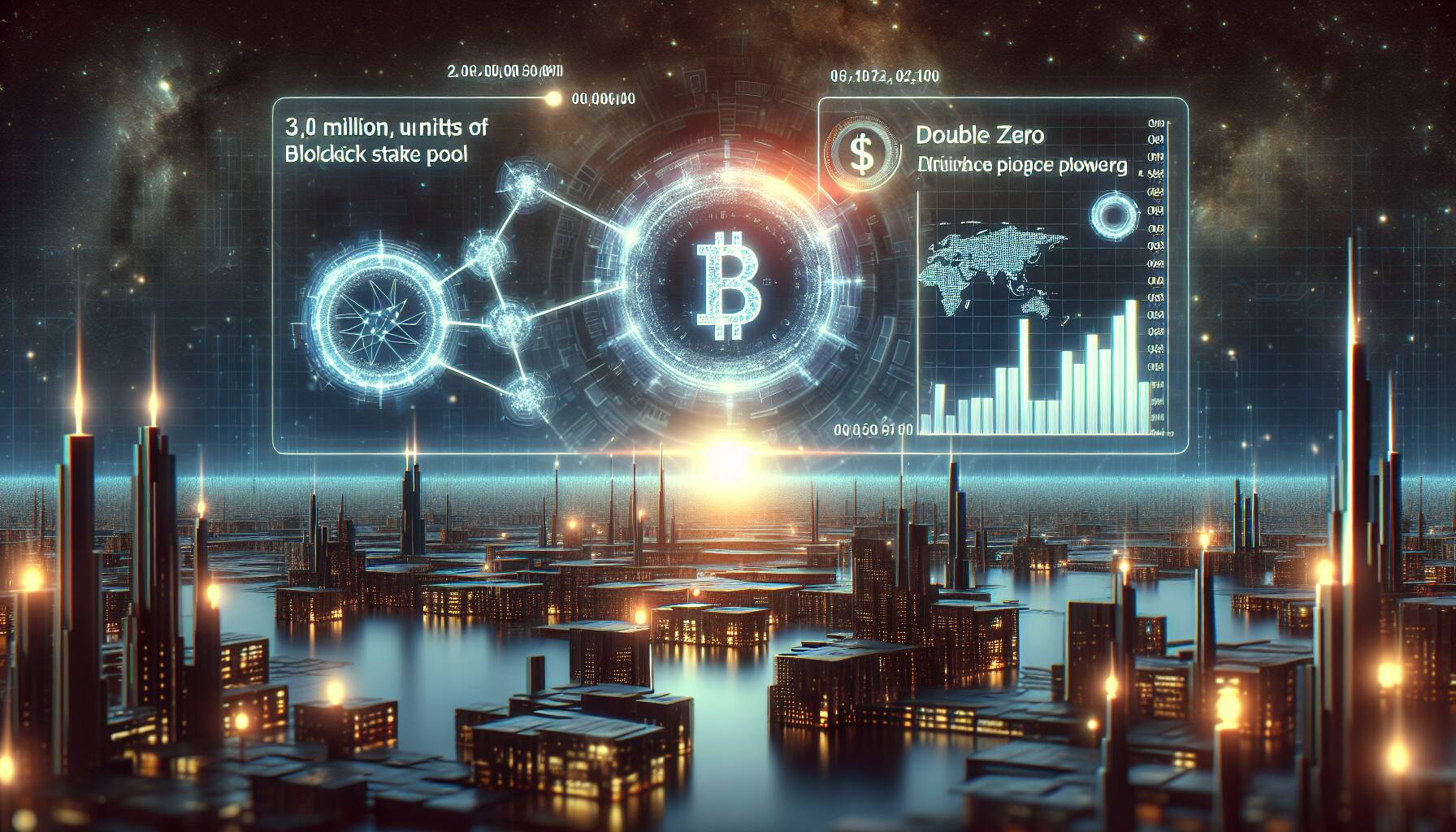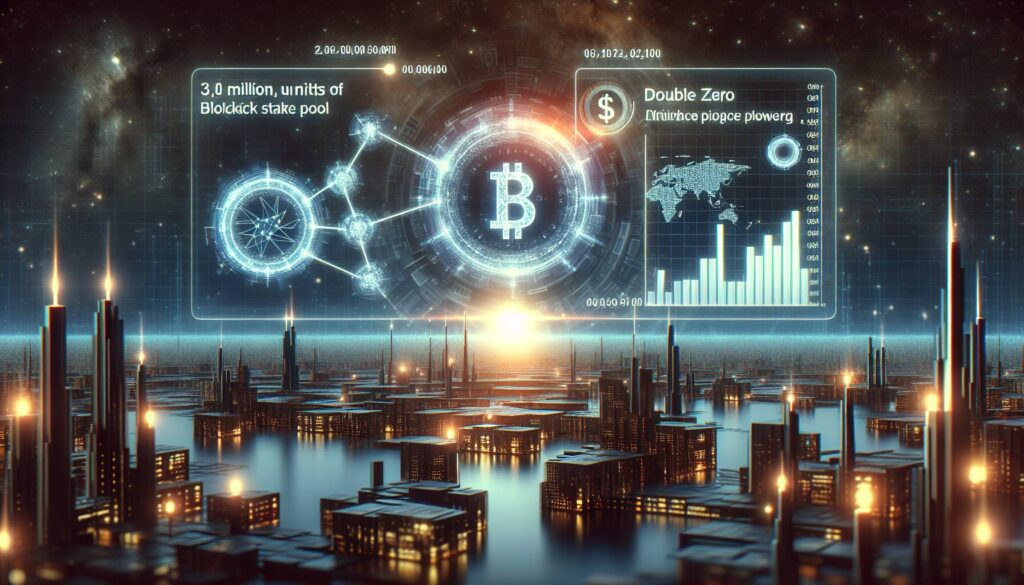DoubleZero, a pioneering decentralized protocol, has made headlines with the launch of its ambitious 3 million SOL stake pool, valued at approximately $537 million. This initiative, marked by the ticker DZSOL, aims to improve blockchain performance by providing Solana validators access to its robust low-latency fiber backbone, ultimately promoting greater network decentralization.
Designed to enhance validator communication, DoubleZero’s innovative architecture integrates private and dark fiber paths into a high-performance network mesh. This configuration allows traffic between validators to bypass congested public internet routes, facilitating more efficient data exchange. As part of its model, DoubleZero charges a modest fee of 5% on validators’ consensus-related revenue to ensure continued access to this enhanced network.
“Faster is better, but faster alone is not enough. Faster must include the ability for everyone on the network to have the same access to data as everyone else,” said Austin Federa, founder of DoubleZero.
With a vision for a future dominated by distributed systems, Federa emphasizes the importance of equitable data access across the network. Having previously led strategic initiatives at Solana Labs and the Solana Foundation, he is well-equipped to drive DoubleZero’s growth and improve the blockchain landscape for all participants.

DoubleZero’s New 3 Million SOL Stake Pool Initiative
Key Points:
- Launch of DZSOL Stake Pool: A new 3 million SOL stake pool has been introduced, valued at approximately $537 million.
- Enhanced Decentralization: The initiative aims to improve access for Solana validators, thereby fostering greater network decentralization.
- High-Performance Network: DoubleZero creates a high-performance network by integrating private and dark fiber paths, optimizing validator connections and reducing congestion.
- Economics of Access: Validators will incur a 5% charge on their consensus-related revenue for utilizing the network, promoting a sustainable funding model.
- Token Burn Mechanism: Implementing token burns helps to alleviate spam and centralization pressure in the network.
- Equal Data Access: DoubleZero emphasizes the importance of equal access to data across the network, not just improved speed, as highlighted by founder Austin Federa.
- Expert Leadership: Founded by Austin Federa, who has significant experience in blockchain strategy and ecosystem growth from his tenure at Solana Labs.
“Faster is better, but faster alone is not enough. Faster must include the ability for everyone on the network to have the same access to data as everyone else.” – Austin Federa
DoubleZero’s Strategic Advance in Blockchain Performance
DoubleZero has taken a significant step in enhancing blockchain performance with the introduction of its new 3 million SOL stake pool, valued approximately at $537 million. This strategic initiative targets Solana validators, aiming to improve network decentralization through a low-latency fiber backbone. In contrast to existing solutions, the DoubleZero protocol offers unique access to a robust mesh network that minimizes reliance on congested public internet pathways, providing a competitive edge in efficiency and reliability.
One of the key advantages of DoubleZero’s approach is the architectural design that integrates private and dark fiber routes. This allows for faster validator-to-validator communication, which is crucial in a rapidly evolving ecosystem where delays can affect overall performance. However, the protocol does impose a 5% charge on validators’ consensus-related revenue, which could deter some from adopting this new infrastructure, especially smaller validators that may already operate on thin margins.
The move towards decentralization is likely to appeal to larger validators and developers looking to bolster their network capabilities. By enhancing the infrastructure, DoubleZero not only benefits existing Solana validators but also positions itself as a crucial player in the expanding landscape of blockchain protocols. On the downside, as more entities vie for similar advancements, the increased competition could lead to operational challenges, especially for startups that may struggle to innovate at the same speed or with the same financial backing.
Austin Federa’s vision emphasizes equitable data access, which resonates in an industry increasingly prioritizing decentralization and inclusivity. This ethos aligns with broader market demands but may create friction with traditional models that prioritize speed over accessibility. Hence, while larger, established validators might thrive under this new system, smaller players could find themselves at a disadvantage, inadvertently fueling further centralization if only a few heavyweights can afford to leverage the advanced capabilities DoubleZero offers.
















